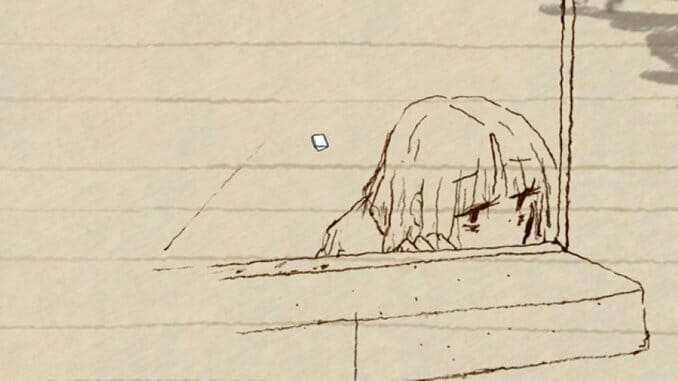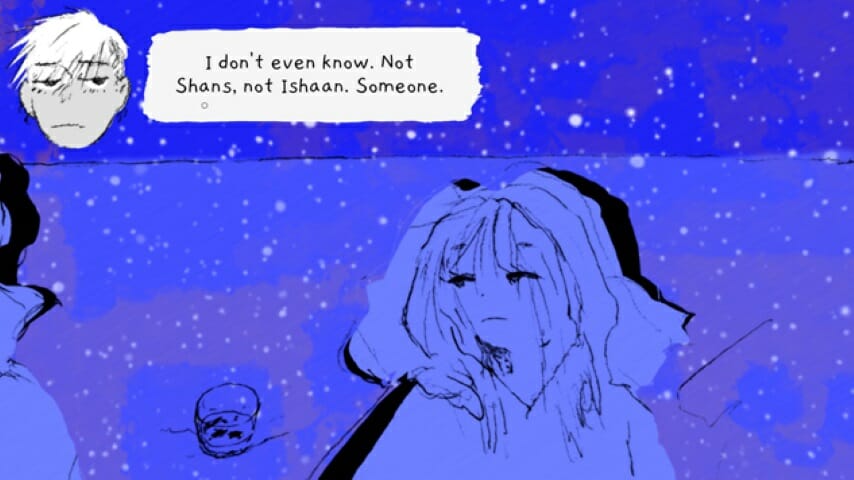
I wouldn’t say I’m comfortable with erasure, but I know it intimately. I’ve always joked about my invisibility. I’m a woman, my voice often snuffed out by men in positions of power before it’s allowed to light up a room, much less burn down a house. I’m Latinx, an extremely large and diverse group of people the rest of society struggles to frame and discuss, and often doesn’t, in discussions about race unless they relate to immigration. I’m a first-generation Latina-American—never American enough for a significant portion of my country, unable to relate to the history I read in school textbooks, but also entirely unable to find much belonging in the culture I am descended from. I’m bisexual, which has made me have to reconcile with my attraction to men and women as much as the fact my sexuality will always be erased; that, to many, I will never be queer enough. Erasure has always been an uncomfortable, disappointing and painful inevitability.
If Found is the first time in which erasure has been an act of healing for me. Instead of speaking up to correct someone that my relationship concerns with an ex weren’t “lesbian problems,” or feeling like I’m part of a chorus screaming for our voices to be heard and for action to be taken, I have been quietly erasing. I do it with a simple eraser, which I can change the size of throughout the three hours I spend perusing Kasio’s journal. Soon, my weak wrists start hurting from dragging the eraser across the screen to erase words, pictures and memories.
But I don’t change the size of the eraser. Changing it would help with the increasing pain in my wrists, but it would make it too easy to do the job. And it’s not a job. It’s a physical act of care—of reconciling with trauma, pain and loss; of acknowledging their existence but not giving them the power to define Kasio, or me. Although I am not Kasio, I feel for her deeply and relate to her experiences.
Through embodying her, I notice my old habit of trying to desperately hold onto things not meant to stay. I test what I can get away with; sometimes, I can proceed with the cutscenes by erasing most, but not all of a journal entry or page. Sometimes, I get away with leaving a drawing of her old friend, Colum, his boyfriend Jack, or their bandmate Shans. It’s easy to become attached to the friends who take Kasio in after she runs away from a home in which she is restricted from being who she is. To the people who see her for who she is: a trans woman who yearns to reach the stars and galaxies that provide her solace through their immeasurability and unreachability. To those of us who are often erased and relegated to the margins, the people who see us can come to mean everything.
At its core, If Found is about the different ways through which we confront erasure.

Shans’ erasure occurs through his dysphoria as an Indian boy living in Ireland. He was unable to meet his grandmother in India, one of the most tangible proofs of his lineage, before she died when he was only 10. He’s neither the Shans the people of Achill Island know nor the Ishaan the rest of his family perceives. Instead, he’s someone else, an invisible person of his own making whom he’s still discovering. He confronts his erasure by creating a new self that demands to be known.
Colum and Jack directly confront erasure by carving a space for themselves. They have built a life together, as rundown and unstable as it is. But it’s theirs, and even if they’re invisible to the world, they’re visible to each other—and that is enough. Despite the cold of the abandoned mansion in which they live and practice as a band, and the lack of life of the paper pages on which the player gets to know them, they are undeniably warm in a way no other relationship in the story feels.
In comparison to her friends, Kasio attempts to erase herself entirely. She runs away from home and finds identity among people who are, like her, erased by society. In the events of the game, she is happiest at a punk show, where she says, “in the anonymity of the crowd, I was free.” When she has a falling out with her friends, she hides from the world. She makes sure to snuff out fires in the middle of the night as her emotionally abusive brother and loved ones alike search for her; she stays silent and erases any traces of her existence.
But it’s also through the act of erasure that Kasio is able to make herself present. Her journal gives witness to her life, a story that no one but she knows in its entirety. To write is to immortalize—a thought, idea or memory. To erase is to rebel against this notion of immortalization—and, subsequently, to be open to change. If Found is how Kasio reflects on the permanent significance and impact of her memories, and ultimately makes the choice of letting them go.
And perhaps sometimes that is the most healing and gentle act we can give ourselves. I have always perceived erasure as an inherently negative and disempowering act due to how it has been thrust upon me. But, as I erased the extensive content of Kasio’s journal, I felt empowered. With her permission, I was both seeing and erasing the testaments to her sorrow. I was acknowledging the past and leaving it there so that she can build a better future, one pass of an eraser at a time.
Natalie Flores is a freelance writer who loves to talk about games, K-pop and too many other things.